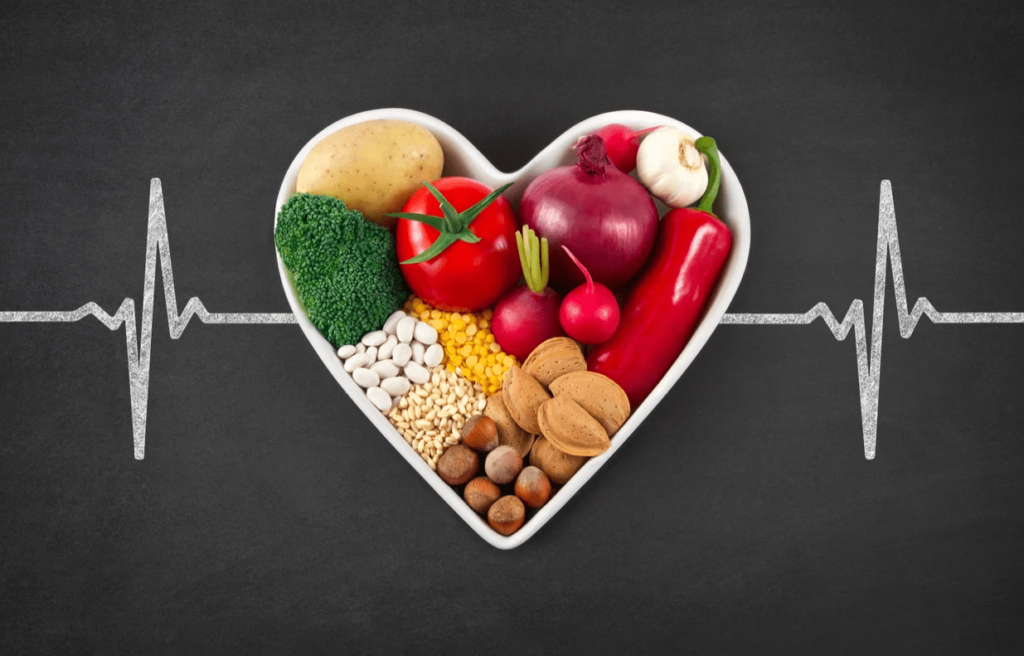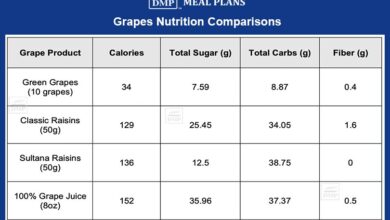
Can Skipping Breakfast Lead to Nutrient Deficiencies?
Can skipping breakfast lead to nutrient deficiencies? It’s a question that has sparked debate among health experts and nutrition enthusiasts alike. While some individuals thrive on intermittent fasting and skip breakfast without experiencing any negative consequences, others may find that omitting this crucial meal can lead to a host of nutritional imbalances.
Breakfast, often referred to as the most important meal of the day, plays a vital role in providing our bodies with the energy and nutrients they need to function optimally. It helps kickstart our metabolism, replenishes our energy stores after a long night’s sleep, and sets the stage for healthy eating habits throughout the day.
However, the reality is that many people struggle to find time for a sit-down breakfast, leading to a common question: Is skipping breakfast truly detrimental to our health?
Nutritional Importance of Breakfast

Breakfast is often referred to as the most important meal of the day, and for good reason. It provides the body with the essential nutrients and energy it needs to kickstart the day and function optimally.
The Role of Breakfast in Nutrient Intake
A balanced breakfast plays a crucial role in providing the body with essential nutrients that are vital for various bodily functions. These nutrients include carbohydrates for energy, proteins for muscle building and repair, healthy fats for hormone production and cell function, vitamins and minerals for immune support and overall health.
- Carbohydrates:Breakfast provides the body with a readily available source of energy in the form of carbohydrates, which are broken down into glucose. This glucose is then used by the brain and muscles for optimal functioning.
- Proteins:Breakfast proteins are essential for building and repairing tissues, including muscles, as well as producing enzymes and hormones. These proteins contribute to maintaining a healthy metabolism and satiety.
- Healthy Fats:Breakfast containing healthy fats like those found in nuts, seeds, and avocado contribute to hormone production, cell function, and absorption of fat-soluble vitamins.
- Vitamins and Minerals:A nutritious breakfast provides essential vitamins and minerals like vitamin C for immune function, iron for oxygen transport, and calcium for strong bones.
Breakfast’s Contribution to Energy Levels and Cognitive Function
Breakfast is a key factor in regulating energy levels and cognitive function throughout the day.
- Energy Levels:Skipping breakfast can lead to a drop in blood sugar levels, resulting in feelings of fatigue, low energy, and difficulty concentrating. Eating a balanced breakfast helps maintain stable blood sugar levels, providing sustained energy throughout the morning.
- Cognitive Function:Studies have shown that breakfast consumption is associated with improved cognitive performance, including better memory, attention, and focus. The nutrients provided by breakfast support brain function and optimize mental alertness.
Nutrient-Rich Breakfast Foods
There are many delicious and nutritious breakfast options that can provide a balanced mix of macronutrients and micronutrients.
- Oats:Oats are a good source of fiber, which helps regulate blood sugar levels, promotes satiety, and supports gut health. They also contain protein, vitamins, and minerals.
- Eggs:Eggs are a complete protein source, providing all essential amino acids. They are also rich in choline, which is important for brain health and cognitive function.
- Fruits and Vegetables:Fruits and vegetables are packed with vitamins, minerals, and antioxidants. They are also low in calories and high in fiber, making them a healthy and satisfying addition to breakfast.
- Nuts and Seeds:Nuts and seeds are excellent sources of healthy fats, protein, fiber, and vitamins. They are also a good source of magnesium, which is important for energy production and muscle function.
- Yogurt:Yogurt is a good source of protein, calcium, and probiotics, which are beneficial for gut health. Choose plain yogurt and add your own fruits, nuts, or seeds for a more flavorful and nutritious breakfast.
Potential Nutrient Deficiencies from Skipping Breakfast

Skipping breakfast can have a significant impact on your overall health and well-being. It can lead to a range of nutrient deficiencies that can affect your energy levels, mood, and cognitive function. Let’s explore some of the common nutrient deficiencies that may arise from skipping breakfast and their potential health consequences.
Iron Deficiency
Iron is an essential mineral that plays a vital role in transporting oxygen throughout the body. It’s particularly important for red blood cell production, which carries oxygen to all parts of the body. Iron deficiency, also known as anemia, can lead to fatigue, weakness, shortness of breath, and pale skin.
Iron-rich breakfast foods include fortified cereals, spinach, and eggs.
Vitamin B12 Deficiency
Vitamin B12 is crucial for the production of red blood cells and the maintenance of a healthy nervous system. It also plays a role in energy production and DNA synthesis. A deficiency in vitamin B12 can cause fatigue, weakness, numbness, and tingling in the hands and feet.
Breakfast foods rich in vitamin B12 include eggs, fortified cereals, and dairy products.
Fiber Deficiency
Fiber is an essential nutrient that helps regulate digestion, promotes bowel health, and can help control blood sugar levels. Skipping breakfast can lead to a lower fiber intake, which can contribute to constipation and other digestive issues. Breakfast foods rich in fiber include whole-grain cereals, fruits, and vegetables.
Calcium Deficiency
Calcium is vital for strong bones and teeth, muscle function, and nerve transmission. It’s also important for blood clotting and regulating blood pressure. A calcium deficiency can increase the risk of osteoporosis, a condition that weakens bones and makes them more prone to fractures.
Breakfast foods rich in calcium include dairy products, fortified cereals, and leafy green vegetables.
Skipping breakfast can definitely lead to nutrient deficiencies, especially if you’re not making up for those missed nutrients later in the day. A good way to ensure you’re getting your vitamins and minerals is to start your day with a hearty and healthy breakfast, like a bowl of slow cooker vegan mashed sweet potatoes.
These are packed with fiber, potassium, and vitamin A, all essential for a healthy and balanced diet. So, if you’re worried about missing out on key nutrients, try adding a nutritious breakfast to your routine.
Zinc Deficiency
Zinc is a mineral that plays a crucial role in immune function, wound healing, and cell growth. It also supports healthy vision and taste. Skipping breakfast can lead to a zinc deficiency, which can weaken the immune system, slow wound healing, and impair taste and smell.
Breakfast foods rich in zinc include eggs, nuts, and beans.
Skipping breakfast can definitely lead to nutrient deficiencies, especially if you’re not making sure to get enough vitamins and minerals throughout the day. But sometimes, getting out for a walk together can help you stay focused on your goals, even when it comes to eating healthy! If you’re trying to break a bad habit like skipping breakfast, a little bit of quality time with your partner can make a big difference.
Read more about how walking together helps you stay together and maybe you’ll find the motivation to start your day off right.
Potential Health Consequences of Nutrient Deficiencies, Can skipping breakfast lead to nutrient deficiencies
Skipping breakfast can have a significant impact on various aspects of health, including:* Energy Levels:Nutrient deficiencies can lead to fatigue and low energy levels, making it difficult to perform daily tasks and engage in physical activity.
Mood Skipping breakfast can affect mood and increase the risk of irritability, anxiety, and depression.
Cognitive Function Nutrient deficiencies can impair cognitive function, affecting memory, concentration, and learning ability.
Physical Performance Skipping breakfast can negatively impact physical performance, leading to decreased muscle strength, endurance, and overall athletic ability.
Impact of Skipping Breakfast on Metabolism and Weight Management
Skipping breakfast might seem like a convenient way to save time or reduce calorie intake, but it can have unintended consequences for your metabolism and weight management. When you skip breakfast, your body enters a state of fasting, which can affect how your body burns calories and regulates hunger hormones.
Impact on Metabolism and Energy Expenditure
Skipping breakfast can influence your metabolism and energy expenditure throughout the day. When you eat breakfast, your body receives a signal to start burning calories, boosting your metabolic rate. This can help you burn more calories throughout the day, even during periods of rest.
However, when you skip breakfast, your body may enter a state of “starvation mode,” where it slows down your metabolism to conserve energy. This can lead to a decrease in calorie expenditure and potentially make it harder to maintain a healthy weight.
Relationship Between Breakfast Skipping and Weight Gain or Obesity
Numerous studies have investigated the link between skipping breakfast and weight gain or obesity. Some research suggests that breakfast skippers may be more likely to experience weight gain or struggle with maintaining a healthy weight. For instance, a study published in the American Journal of Clinical Nutrition found that individuals who regularly skipped breakfast had a higher body mass index (BMI) compared to those who ate breakfast.
However, it’s important to note that correlation does not equal causation. Other factors, such as overall dietary patterns and physical activity levels, also play a significant role in weight management.
Skipping breakfast can definitely contribute to nutrient deficiencies, but it’s also a common habit for those trying to cut calories. If you’re looking for ways to trim your intake, there are some easy ways to cut up to 500 calories without sacrificing your nutritional needs.
Maybe try incorporating a nutritious breakfast smoothie or opting for a lighter lunch with plenty of veggies. Remember, the key is to fuel your body with balanced meals throughout the day, not just skip meals to try to shed a few pounds.
Effects of Eating Breakfast Versus Skipping Breakfast on Appetite Control and Food Cravings
Breakfast consumption can have a positive impact on appetite control and food cravings. Eating breakfast helps regulate your blood sugar levels, which can help prevent sudden drops in blood sugar that often lead to hunger pangs and cravings for sugary or high-fat foods.
When you skip breakfast, your blood sugar levels may fluctuate more dramatically, increasing the likelihood of experiencing intense hunger and cravings later in the day. This can lead to overeating and unhealthy food choices, ultimately contributing to weight gain.
Individual Factors Affecting Nutrient Intake

The impact of skipping breakfast on nutrient intake can vary greatly depending on individual factors such as age, activity level, and dietary preferences. Furthermore, specific medical conditions or dietary restrictions can significantly influence the need for breakfast. Understanding these factors is crucial for making informed decisions about breakfast habits.
Age
Age plays a significant role in determining the nutritional needs of an individual. Children and adolescents require a higher intake of essential nutrients, including protein, calcium, and iron, to support growth and development. Skipping breakfast can be particularly detrimental for these age groups, as it can lead to a deficiency in these crucial nutrients.
For example, a growing child who skips breakfast may miss out on the essential nutrients needed for proper brain function and physical development.
Activity Level
Physical activity demands a higher calorie and nutrient intake to fuel the body and recover from exertion. Individuals with high activity levels may need to consume more calories and nutrients, including carbohydrates, protein, and electrolytes, to support their energy needs and muscle recovery.
Skipping breakfast can hinder performance and recovery, as it may not provide the necessary fuel for intense physical activity. For instance, an athlete who skips breakfast may experience fatigue, muscle weakness, and decreased performance during training or competition.
Dietary Preferences
Dietary preferences can also influence the impact of skipping breakfast. Individuals who follow specific dietary patterns, such as vegetarianism or veganism, may need to pay particular attention to their breakfast choices to ensure they are meeting their nutritional needs.
For example, a vegan who skips breakfast may miss out on essential nutrients like vitamin B12, which is not readily available in plant-based foods.
Medical Conditions and Dietary Restrictions
Certain medical conditions or dietary restrictions can necessitate a more structured approach to breakfast. Individuals with diabetes, for example, may need to consume a balanced breakfast to regulate blood sugar levels. Similarly, individuals with food allergies or intolerances may need to carefully plan their breakfast meals to avoid triggering reactions.
For instance, a person with celiac disease must avoid gluten, and skipping breakfast could lead to accidental exposure and adverse health consequences.
Lifestyle Choices and Dietary Habits
Lifestyle choices and dietary habits can significantly impact the risk of nutrient deficiencies. Individuals who consume a diet low in fruits, vegetables, and whole grains may be at increased risk of nutrient deficiencies, regardless of whether they skip breakfast or not.
For example, a person who regularly consumes processed foods and sugary drinks may have a higher risk of nutrient deficiencies, regardless of whether they skip breakfast or not.
Alternatives to Traditional Breakfast: Can Skipping Breakfast Lead To Nutrient Deficiencies
Skipping breakfast doesn’t have to mean missing out on crucial nutrients. There are many delicious and convenient alternatives that can fuel your morning without sacrificing your time. These options are designed to fit seamlessly into busy schedules, ensuring you get the energy and nourishment you need to start your day right.
Alternative Breakfast Options
Here’s a table showcasing various quick and nutritious breakfast alternatives that can easily be incorporated into your routine:
| Meal Type | Nutrient Content | Preparation Time | Examples |
|---|---|---|---|
| Smoothies | Rich in vitamins, minerals, fiber, and protein depending on ingredients | 5-10 minutes |
|
| Overnight Oats | High in fiber, protein, and complex carbohydrates | 5 minutes of prep, overnight soaking |
|
| Yogurt Parfaits | Excellent source of calcium, protein, and probiotics | 5 minutes |
|
| Hard-Boiled Eggs | Rich in protein, vitamins, and minerals | 10 minutes (cooking time) |
|
| Fruit and Nut Bars | Convenient source of fiber, protein, and healthy fats | Ready-to-eat |
|
On-the-Go Breakfast Choices
For those with busy schedules, on-the-go breakfast options are essential. Here are some ideas that can be easily incorporated into your routine:
- Pre-packed smoothie bags:Blend all the ingredients for your smoothie the night before and store them in a resealable bag. Simply add to a blender in the morning and enjoy.
- Yogurt with fruit and granola:Pack a container of yogurt with your favorite fruit and a small bag of granola for a quick and nutritious breakfast on the go.
- Hard-boiled eggs:Hard-boiled eggs are portable and provide a great source of protein. Pair them with a piece of fruit or a small salad for a complete breakfast.
- Fruit and nut trail mix:Combine your favorite fruits, nuts, and seeds in a reusable container for a healthy and satisfying snack or breakfast option.
- Whole-grain toast with peanut butter:Whole-grain toast with peanut butter is a quick and easy breakfast that provides protein, fiber, and healthy fats.
End of Discussion
In conclusion, while skipping breakfast may not necessarily lead to nutrient deficiencies for everyone, it’s important to consider the potential risks involved. By understanding the role of breakfast in providing essential nutrients, regulating metabolism, and influencing energy levels, we can make informed decisions about our eating habits.
Whether you choose to enjoy a traditional breakfast or opt for a quick and convenient alternative, ensuring that your diet is balanced and provides adequate nutrients is crucial for overall health and well-being.






